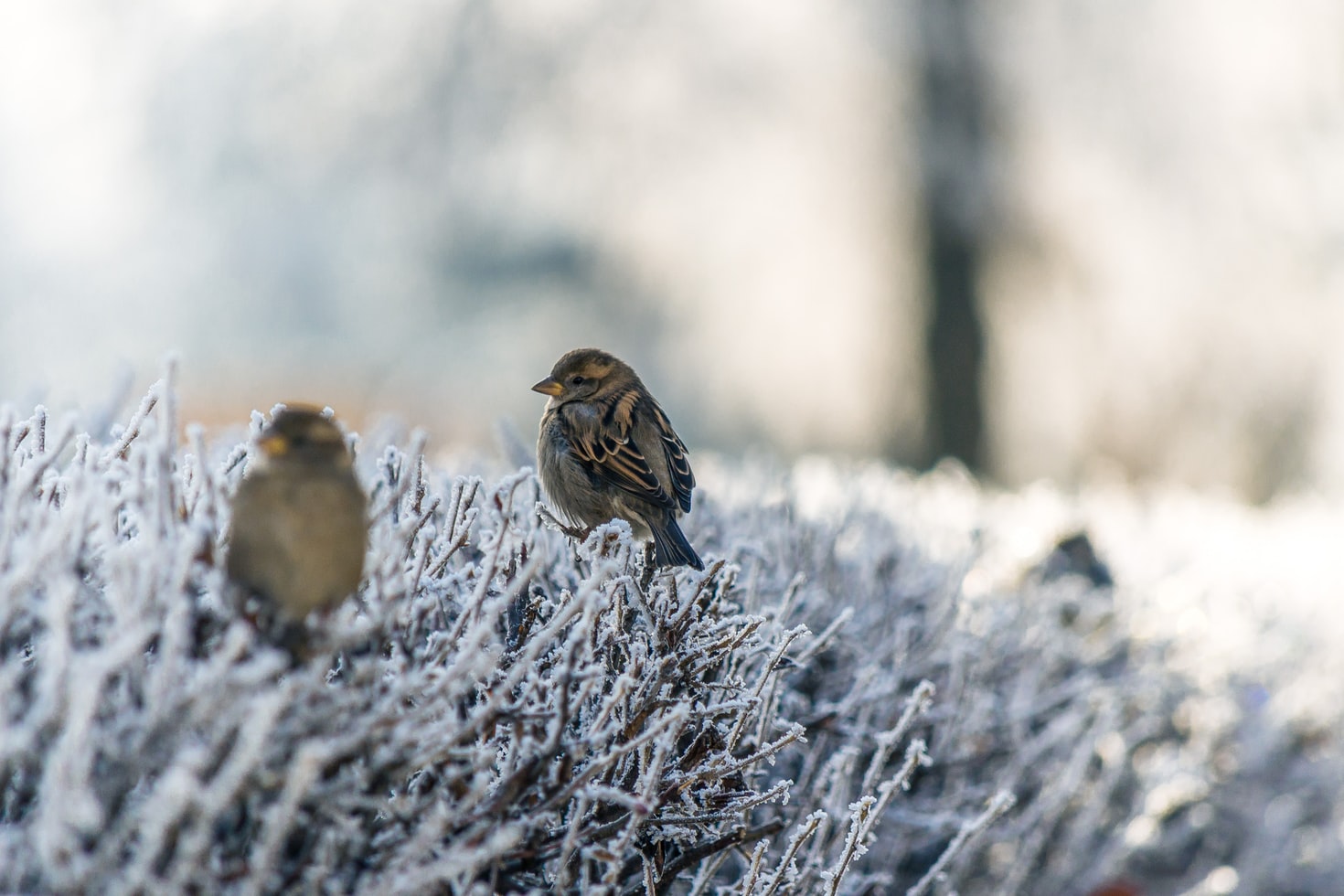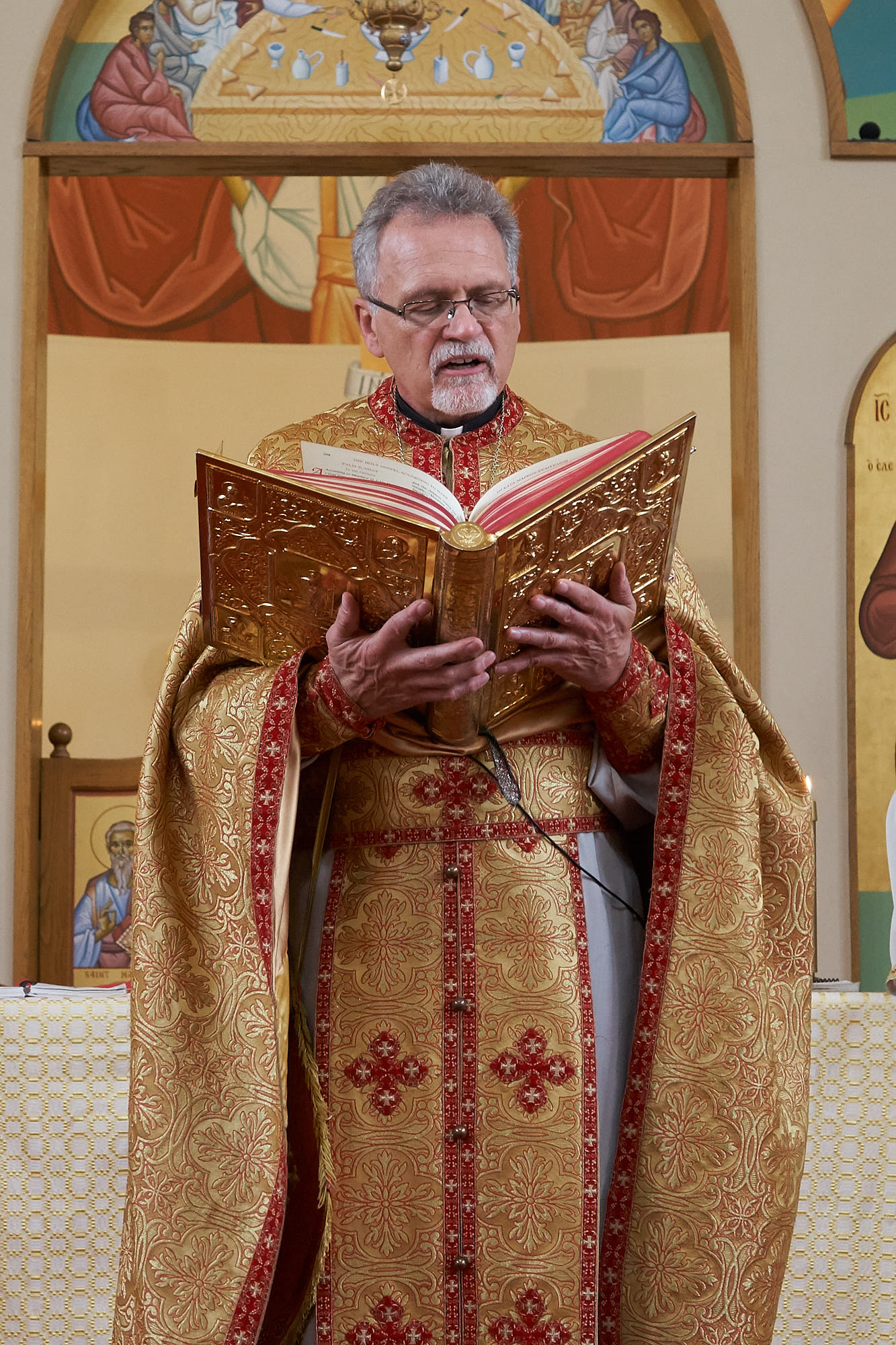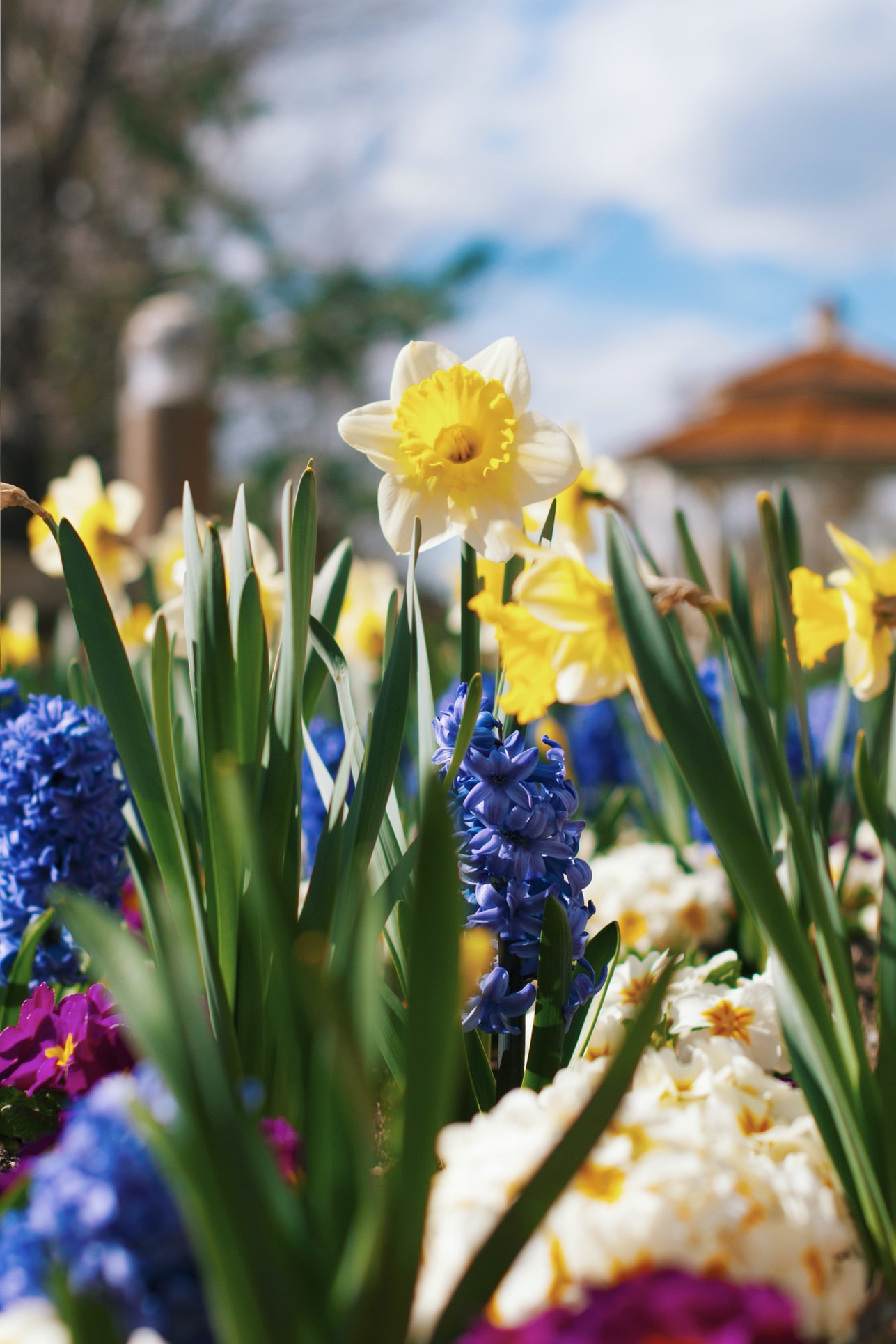I noticed the first stirrings on a brisk, chilly walk through the neighborhood with my dog. The dreary January day was messing with my mood. Post-Christmas, post-New Year, my sick-of-winter malaise arrives as predictably as the turning of a calendar page. * sigh * And the only good thing about February is Girl Scout cookies.

Where I live, nature’s colors at this time of year consist of brown sticks, brown grass, and patches of unmelted snow in shady brown areas. The needles of evergreen trees provide the only variation to a dull, sepia-toned landscape. Spring is both a distant memory and a distant hope. And yet, the birds twittered.
And what about us? We’re always frowning, always pouting; we don’t feel like singing or doing anything else. We should follow the example of the birds. They’re always joyful whereas we’re always bothered by something. What is it that bothers us? Nothing, really. . . . Isn’t that right? — Elder Thaddeus(Strabulovich) of Vitovnica, Our Thoughts Determine Our Lives: The Life and Teachings of Elder Thaddeus of Vitovnica, p.57
I couldn’t see a house wren or black-capped chickadee hidden among the thick branches of a very tall blue spruce. But they had thrown off their winter silence to announce the coming of spring—with no visible evidence to accompany the warbling soundtrack.

A few days later, February arrived with temperatures in the teens and single digits. The landscape remained brown and white.

The birds didn’t care. They kept twittering.
As I write these words, my town has been freezing for several days under an Arctic air mass that is shattering low-temperature records. But the birds keep twittering, flocking to the feeder outside my front window.
They know spring is coming. They sense it in a deep, instinctual way. Their knowledge reminds me of faith, “the substance of things hoped for, the evidence of things not seen” (Heb. 11:1).
I don’t have that mystical connection with the changing seasons. I feel spring through my senses—I see the first blades of a crocus pushing through a patch of snow, I feel the warmth of the sun on ungloved hands, I breathe in the earthy fragrance of moist soil. But the changes begin long before they register with my dull senses. And in a world of brown and white, the birds’ chirping turns my thoughts to starting vegetable seeds, building a new garden bed, and digging holes in the fragrant earth to make room for colorful perennial flowers.

Great Lent approaches in the same way—quietly, incrementally. The daily lectionary readings, like the days, begin to lengthen. Larger chunks of Gospel and epistle passages nudge us, signaling us to adjust our prayer schedules before we begin the long daily readings from Isaiah, Genesis, and Proverbs. (Or at least parts of them. The readings really are long. We do our best.)
The Triodion period arrives, and once again we contemplate the Publican and the Pharisee, the prodigal son and his Father, and the Final Judgment. With the Church’s wise direction, we make preparations, cleaning our hearts of pride, judgment, and spiritual laziness while we clear out the chicken breasts and roasts from our freezers. We say farewell to meat and then to cheese.
Just before spring arrives, one may begin to see the fresh and tender grass, the return of birds which winter had banished, and many such tokens. These are but signs of spring, not spring itself. While they may be sweet, they are indications of what is yet sweeter. – St. Gregory of Nyssa, Letter 9
As I walk this Orthodox path, I realize that spring has become intertwined in my thoughts with Great Lent. The birds break out in song, and their chatter tells me that a new season is on the horizon, both physically and spiritually.

Great Lent begins, and at some point, either early or late in the journey, the bulbs of spring arrive. First the snowdrops and crocuses, then daffodils, anemones and hyacinths, and finally the tulips. Their bloom times overlap, but they follow a pattern. The trees bud, the grass greens up.
The signs are here spiritually too, with the anticipation of a season that embodies growth, change, and renewal.
Everything around us is a drop of God’s love; and animate and inanimate, and plants, and beasts, and birds, and mountains, and the sea, and sunset, and the sky strewn with stars. It is a small love through which we come to Great Love, to Christ. — St. Porphyrios of Kavsokalyva
Perhaps you live in a warmer climate, and the flowers’ colorful blooms and sweet fragrance arrive before Lent, heralding the blessings to come. Our brothers and sisters in South Africa, Australia, and New Zealand are seeing the first indications of autumn as Lent approaches. There are lessons here too, of winter and waiting, of the dying to self that is so important in our ascetical efforts, and of the sure hope that Jesus has trampled death by death.
But I haven’t yet had the privilege of visiting these places. I only know the lessons of nature that surround me, and they speak to me of anticipation, of hope dawning, and of preparation for change.
Is it weird that Rob and I have been looking forward to Great Lent? We no longer feel the novelty of the convert’s first encounters with changes in melodies and vestments, in new and more frequent services, and of praying with prostrations. We both get tired of the dietary restrictions. Attendance at weekday Complines and Divine Liturgies is a juggle because the rest of the world continues its normal pace of appointments, work, and obligations. And we can count on unexpected expenses that make extra almsgiving truly a sacrifice.

And yet . . . we’re eager to begin. And to begin again. The Lenten journey is a time to refocus. In some areas in our lives—maybe in a lot of areas—we know we’ve strayed from the path. Like an off-key piano, a compass dial that has detached, or a worn sofa, Great Lent provides an opportunity for a tune-up, a recalibration, a deep cleaning to remove the stain of sin and to clear out the dust bunnies of spiritual sloth.
Prayer, fasting, and almsgiving. Oh my. Such simple disciplines, even a child can remember them. And yet they touch every corner of our hearts and minds. We discover that we’ve held on to things that we should release, and we’ve let go of the things that we should cling to. The process can be painful, but it is a path of healing. We share in the healing as we journey together as the Body of Christ, not in the isolation that can lead us off-course.
Every flower is fragrant through the power of the Holy Spirit, in a delicate flow of aroma and tenderness of color; the beauty of the Great contained in what is small. Praise and honor to God, Who gives life, Who spreads forth the meadows like a flowering carpet, Who crowns the fields with golden ears of wheat and azure basilisks, and the soul – with the joy of contemplation. / Let us rejoice and sing to Him: Alleluia. — Akathist Glory to God for All Things, Kontakion 3

The Lenten season is a time of change, of new growth, of renewal. And at the end of a long and arduous journey, the joy of Pascha awaits us!
We’re not quite there yet. Cheese pizza is still on the menu. The hymns have not yet shifted to a minor key. The vestments and altar cloths have not changed to a somber purple. But the stirrings have begun.
Great Lent is almost here. The song breaks forth. The soil thaws. And through God’s grace, as we cooperate with Him in a mystical synergy, our hearts will thaw too.
May we all experience new life together on our Lenten journey!
Thanks, Lynnette. Your podcasts have been a great encouragment.
This will hopefully be my first uninterrupted Lent/Pascha season. My wife and I first started attending our local orthodox church just five months before the 2020 pandemic lockdown. Like the rest of our parish we were prevented from participating in the regular flow of church life during this time; unlike most of the others, we didn’t have years of practice and ingrained discipline to fall back on. In May 2020, my wife received her first ever cancer diagnosis, which launched us on a whirlwind cycle of radiation treatments, an extensive surgery with long recovery, and months of debilitating chemotherapy; all this prevented our regular attendance for many months even when our parish started allowing reserved-seating attendance for divine liturgy. Long story short, 2022 will mark our first-ever “normal” holy week, as well as our chrismation after a decidedly nonstandard catechumenate. God bless you, and keep up the good work!
Oh, my. Such incredible hardship during an already difficult time with Covid-19. My parish received 17 people into the Church during the pandemic. I don’t know how they did it—-Orthodox worship is very physical, and it’s hard to build friendships with social distancing or a laptop screen. I’m so glad that you two persevered. I think Holy Week will be especially powerful for you because you’ve had to wait. Welcome to the Church!